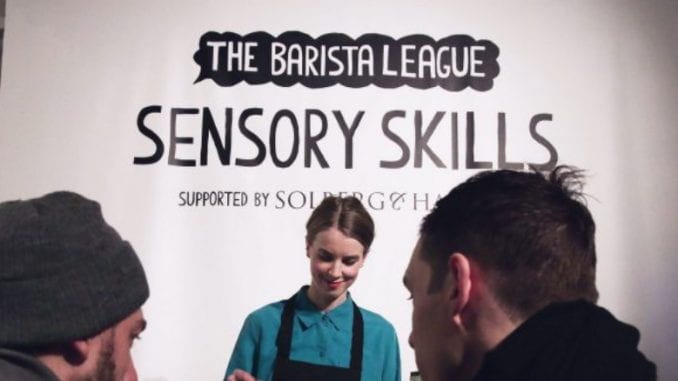
We all love a good ol’ fashioned throwdown, but there are a number of ways to engage the coffee community and promote education. Here are four quick events you can organize in your hometown!
BY ASHLEY RODRIGUEZ
BARISTA MAGAZINE ONLINE
In the last week, Barista Magazine Online has highlighted barista events happening across the country—a career-building workshop hosted by Map It Forward and the San Diego Coffee Network, and a bystander training hosted at Everyman Espresso in New York City. This isn’t the first time this website has covered events like this; the Charlottesville coffee community recently hosted an ASL training for baristas, and groups like the Bay Area Coffee Community (BACC) regularly put on events like the Taste Fair, bringing in experts from different specialty fields to discuss taste and how they evaluate their products.
These events are different from the throwdowns and occasional coffee cuppings that have been the most common opportunity for coffee professionals to access industry events and professional development. And that makes sense—these events are standards in our industry, and generally easy to organize. In this article, we focus on five ways you can engage your local coffee community and provide programming that is dynamic and interesting.
- Create a competition besides a throwdown.
Most baristas don’t get to engage in competitions beyond a latte art competition or throwdown, so brainstorm ideas for new competitions. In Europe, the Barista League has gained popularity as an off-beat and low-cost option for the European coffee community to come together and let off some steam. In New York, Joe Coffee invited teams of baristas from various coffee companies to compete in a series of events called the Barista Olympics, where teams of four from different stores were pitted against each other in a silly and light-hearted competition.
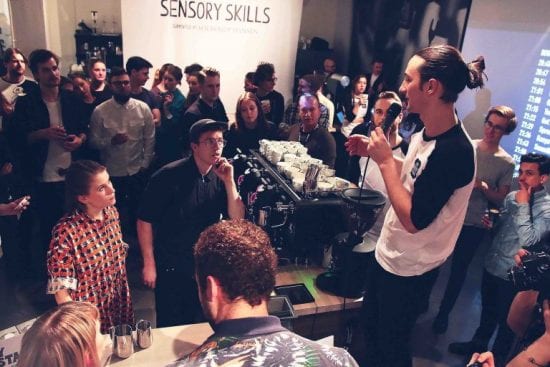
- Turn to other experts to talk about their fields.
At Bloom this past July, the BACC hosted a Taste Fair, which invited professionals from other specialty industries to discuss their fields, how they craft their goods, and how the evaluate flavor, taste, and quality. This event was highly structured, with participants rotating from table to table, engaging in a quick tutorial about each professional’s industry.
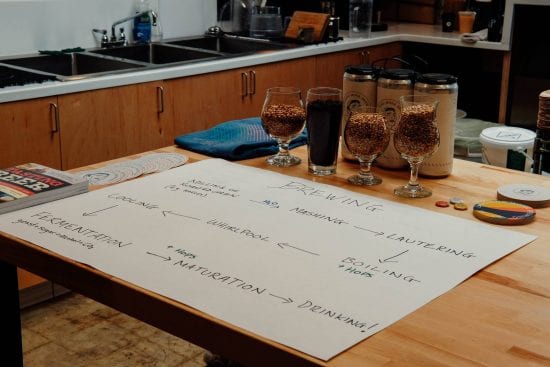
While events like the Taste Fair are fun (and completely replicable), smaller events focusing on one industry are also a great way to engage coffee folks. If there’s a local brewery in your neighborhood that baristas tend to haunt, perhaps ask them for a tour. Coffee has a ton to learn from other industries, so try hosting an event that asks other pros to share their knowledge (and remember to be mindful of dietary restrictions and host a variety of events that involve goods everyone can enjoy).
- Build career workshops and mentoring programs.
Many baristas don’t know how to translate the skills they’ve learned in a coffee shop to a resume, or can envision next steps beyond the café bar. This was one of the main ideas the Map It Forward workshop hoped to tackle, and there’s plenty of room for more of these events to happen all across the nation. Ask a career expert to talk to baristas about how to ask for a raise, or host a mentoring night aimed at building connections between established and new roasters.
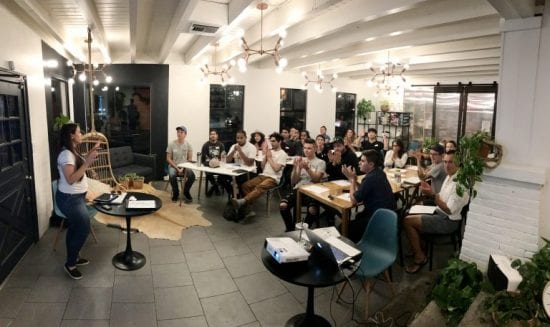
- Empower baristas and coffee professionals to intervene, stand up, and know their rights.
We recently featured Everyman Espresso’s bystander training, which involved giving baristas and patrons alike the tools to deescalate potentially harmful situations instead of ignoring harassment, ensuring that staff and customers can leave scenarios safely. San Penix, owner of Everyman Espresso, tells us that this will not be the only event Everyman hosts, and that he hopes the materials and information they collect through these trainings can be disseminated to other managers and coffee shop owners so that cafés all over can host their own workshops.
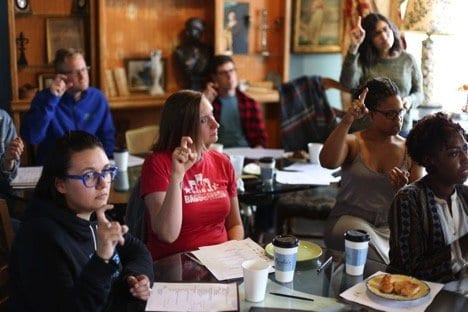
Earlier this year, the employees of Gimme! Coffee in Ithaca, N.Y., formed a union, so perhaps your company or local coffee organization could invite an employment lawyer to speak to baristas about their rights, or engage with local or national restaurant associations to speak about harassment at work. Many baristas don’t know their rights at work, and finding experts to speak about these issues and make sure employees have information is a key step to ensuring that our working baristas are treated fairly and can handle potentially dangerous situations at work—be it from harassers or from their employers.
Obviously, we all love a good throwdown—we love it so much that we told the oral history of the Thursday Night Throwdown in a feature earlier this month. By providing a variety of programming, we can both build a stronger coffee community by engaging a wider range of our industry and bring depth to the coffee world through events and lectures that are meaningful and push the members of our industry to grow.

